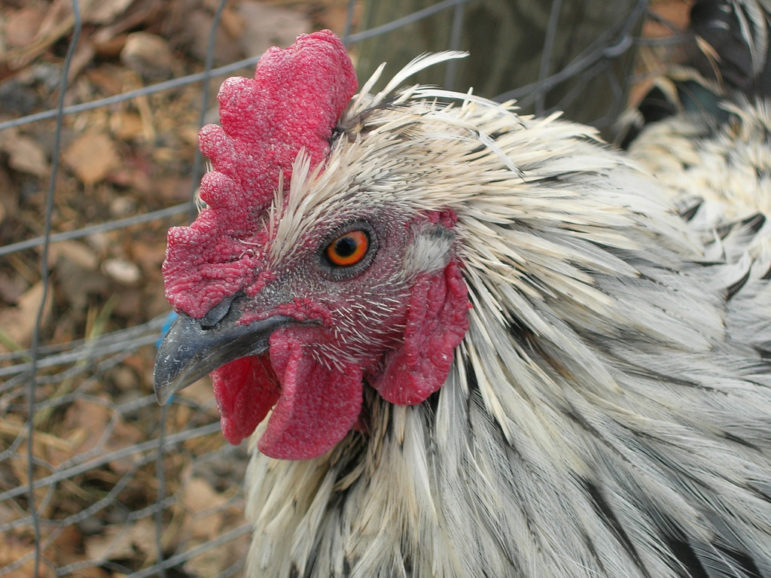
Dano
The sky is not falling. But getting antibiotic-free, grass-fed, humanely raised chicken onto NYC school lunch tables is proving more difficult than expected.
New York City schools have once again pulled chicken tenders from its cafeteria menus, this time after a student found a piece of metal in one.
Somma Foods chicken tenders were yanked from school kitchens in November after students found fragments of bone or blue plastic in them and one kitchen staffer had to be rescued after he choked on a bone in a tender. After those incidents, an X-ray system was installed at the company’s processing facility to detect bones in chicken.
Earlier this month, a student found a piece of metal in a Somma chicken tender. Somma told schools to throw out the chicken on hand in school kitchens and the company arranged to pick up any tenders that delivery companies still had in their warehouses. Somma says it has now installed a second metal detector (there was already one in place) to prevent the problem from happening again. It describes the incident as an aberration.
According to a spokesperson for city schools, “The investigation is ongoing and this product is not being served in schools until all concerns are addressed.” In a statement, the DOE said: “The safety of students always comes first. Schools have been instructed to discard any remaining items and we will not be serving it again until all concerns have been addressed. We are holding the manufacturer accountable and are investigating the cause of this incident.”
Asked if the tenders will be back on the menu at some point, the spokesperson said, “They will not be back on the menu until we can ensure that all quality control issues have been addressed.” Somma says it will submit to a third-party audit of its production process.
The city’s partnership with Somma was announced a year ago last Friday. It came about through SchoolFood’s work with the Urban School Food Alliance, a consortium of seven large school districts that make joint purchasing decisions with the aim of lowering costs and improving nutrition standards. Three years ago the alliance committed to buying only chickens that had been raised eating grass, taking zero antibiotics and receiving humane treatment. Somma provides that type of product.
The city’s school food program is one of the largest feeding systems in the country and is seen by advocates as a vital tool to improving child health, fighting hunger and encouraging better learning. It successfully provides 850,000 meals a day. But the program’s size, complexity and expense has led to problems in the past, from a bid-rigging scheme in the 1990s to severe delivery problems during the Bloomberg administration.
Chicken isn’t the only food that has had a tough time staying on the school menu this year. After mold reports surfaced last school year, sliced pizza manufactured by Schwan Food Company was removed from school kitchens in May, returned to schools in August, then withdrawn again in September after reports of mold surfaced again. The pizza was reintroduced in October, then pulled yet again the following month when new problems arose.
City Limits asked DOE last week if there had been any other reports of foreign matter or contamination of food items this school year. The DOE chickened out of a direct answer, saying only, “All incidents are immediately reported, investigated and addressed.”








